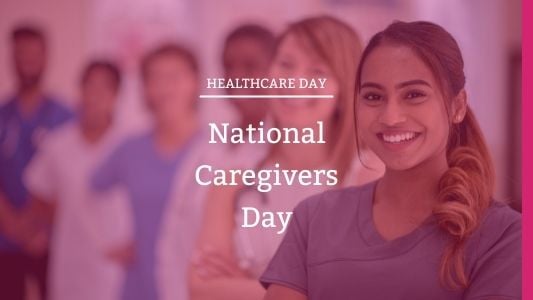
Digital advance care planning (ACP) is incredibly valuable to frontline staff, as well as to behind-the-scenes personnel at hospitals, chronic care management companies, and post-acute care organizations. It can relieve burnout, pressure and stress — that occurs when medical teams don’t have real-time access to ACP documents and portable medical orders like POLST and MOLST forms — as well as alleviate many commonly discussed pain points. Not only does digital ACP improve the lives of patients, their caregivers, and their loved ones, but it also helps the medical personnel who care for those patients, as well as administrative staff.
Digital ACP leverages technology to help patients create or upload, update, and share ACP documents and portable medical orders to a secure, interoperable registry. Those documents are then securely and seamlessly available in electronic health records (EHRs) across the continuum of care at the exact moment they’re needed.
This significantly increases the likelihood that patients’ voices will be honored, informing clinical decision-making, improving healthcare outcomes, and reducing healthcare costs.

1. Digital ACP removes uncertainty
Traditionally, advance directives existed on paper. They were stored in any number of different places, including safes, filing cabinets, with lawyers, or with other family members. This approach to ACP, which is often still done today and has been in place for over 50 years, meant that papers were often at risk of getting misplaced or destroyed. Paper-based records are also rarely available at the moment they’re needed, which puts enormous pressure on the healthcare workers tasked with tracking them down during an emergency. COVID-19 has only further revealed the flaws to this traditional approach.
ADVault’s healthcare provider tools integrate seamlessly and securely with EHRs, meaning digital ACP documents are searchable and easily located and retrieved. In fact, the vast majority of providers can access these documents any time they query for other medical records through their existing platforms. This results in healthcare providers no longer having to hunt for ACP documents that might or might not exist. Instead, their strain is eased, as it’s far quicker and easier for them to access their patients’ ACP documents, and, as a result, provide the medical treatments and interventions their patients want and avoid those they don’t want.
For patients with preexisting paper-based advance directives, those documents can be easily scanned or photographed using a smartphone and uploaded to MyDirectives for secure storage, sharing, and retrieval by healthcare providers at all points of care.
2. Comprehensive reporting brings clarity
 Reporting through ADVault’s healthcare provider tools is extremely comprehensive, providing a deep level of understanding that just isn’t possible with paper-based approaches. For example, hospitals, chronic care management companies, and post-acute care organizations can utilize these reporting features to better their understanding of:
Reporting through ADVault’s healthcare provider tools is extremely comprehensive, providing a deep level of understanding that just isn’t possible with paper-based approaches. For example, hospitals, chronic care management companies, and post-acute care organizations can utilize these reporting features to better their understanding of:
- Which patients are completing and sharing ACP documents, and which patients are struggling and need help.
- Which healthcare providers are proactively engaging with patients, encouraging them to complete and share ACP documents, and which healthcare providers need education and encouragement.
- Which healthcare providers and staff are consistently accessing patients’ ACP documents to ensure goal-concordant care, and which ones are at risk of ordering hospitalizations, medical treatments, or interventions that conflict with patient and caregiver wishes.
ADVault’s digital ACP reporting features also allow healthcare organizations to gain a better understanding of how all these factors affect the success of ACP and, ultimately, the quality of care, patient experience, and associated costs.
3. Digital ACP means happier patients and providers
Patients want to have a voice in their healthcare, and healthcare providers want to know about the patients they are treating, especially if those patients cannot speak for themselves during a medical encounter. Digital ACP gives both patients and providers access to the tools they need to simply create or upload, update, and share ACP documents and POLST and MOLST forms. This provides patients with the comfort of knowing they’re more likely to receive the medical treatments and interventions they want and avoid those they don’t want, and it helps providers know they’re performing treatments and interventions that align with their patients’ values and wishes.
Digital ACP frequently reduces the occurrence of unwanted and unnecessary hospitalizations, medical treatments, and interventions. Specifically, in the post-acute care setting, this leads to:
- Increased satisfaction amongst patients/residents and caregivers
- Increased hospital and health plan referrals, length of stay, and occupancy rates in institutional post-acute care settings, and associated revenue
Digital ACP also leads to higher satisfaction amongst healthcare workers because it:
- Enables structured, meaningful conversations with patients about their healthcare wishes and preferences
- Reduces misunderstandings, improving communication between medical staff, caregivers, and loved ones
- Reduces high-cost medical interventions of limited clinical value
- Promotes more efficient and higher-value use of hospital resources
Improving patient and provider access to digital ACP is a practice that’s ultimately in the best interests of everyone involved.

4. Simple updates provide greater control
One reason patients might distrust ACP is because they worry their priorities or goals could change with time and they’ll be locked into an out-of-date ACP document that might not reflect their future priorities. ADVault has made certain that won’t happen. With the user-friendly MyDirectives platform and healthcare provider tools such as MyDirectives for Clinicians™, updating ACP documents is a stress-free process. Hospitals, chronic care management companies, and post-acute care organizations see higher completion rates of digital ACP documents, and when those digital ACP documents are updated, the updates are seamlessly and securely delivered to all points of care. This increases the likelihood that healthcare providers and family members are able to understand and comply with the patient’s preferences regarding location of care and desired medical treatments and interventions.
Providers also have access to tools allowing them to update patients’ ACP documents either remotely, via telehealth, or during face-to-face appointments, such as Annual Wellness Visits with Medicare beneficiaries.
But patients aren’t dependent upon healthcare providers, case managers, or lawyers. If they want to update their digital ACP documents, they can do so themselves through MyDirectives, which gives them access to their own accounts, allowing them to make changes or upload new digital ACP documents at any time for FREE.
ADVault uses digital signatures and other authentication and verification procedures and tools to ensure the security and authenticity of digital ACP document updates.
5. There’s a cost to foregoing digital ACP
While there are a number of benefits to implementing digital ACP, the costs of not doing so are high. Patient-facing teams continue to struggle with disorganization and uncertainty in their day-to-day activities, resulting in moral stress and frustration for frontline doctors, nurses, and administrative staff.
But that’s not all. There’s also a financial cost to putting off digital ACP.
- Time is lost and productivity reduced when nursing or administrative staff have to repeatedly search for ACP documents
- Unwanted and unnecessary hospitalizations, treatments, and interventions occur
- Healthcare providers and administrative staff experience preventable levels of burnout and stress
- Reduced satisfaction for patients, caregivers, and loved ones, resulting in lower quality scores and decreased referrals
We’re here to help
ADVault creates better healthcare outcomes and reduces healthcare costs. We do this by giving patients a voice in their healthcare and providing healthcare professionals with access to a comprehensive suite of digital ACP solutions that integrate seamlessly into their existing EHRs and clinical workflows, regardless of the setting of care. At ADVault, we know digital ACP is an essential part of healthcare, with multiple advantages for patients, caregivers, loved ones, healthcare providers, administrative staff and healthcare organizations.
That’s why we’re dedicated to helping you implement the modern and effective digital ACP solutions your organization needs.
Let’s get started on digital ACP together
Secure, Interoperable, Accessible.
MyDirectives offers the only digital advance care planning (ACP) tools and interoperable cloud-based storage that is HITRUST Risk-Based 2-year Certified.







